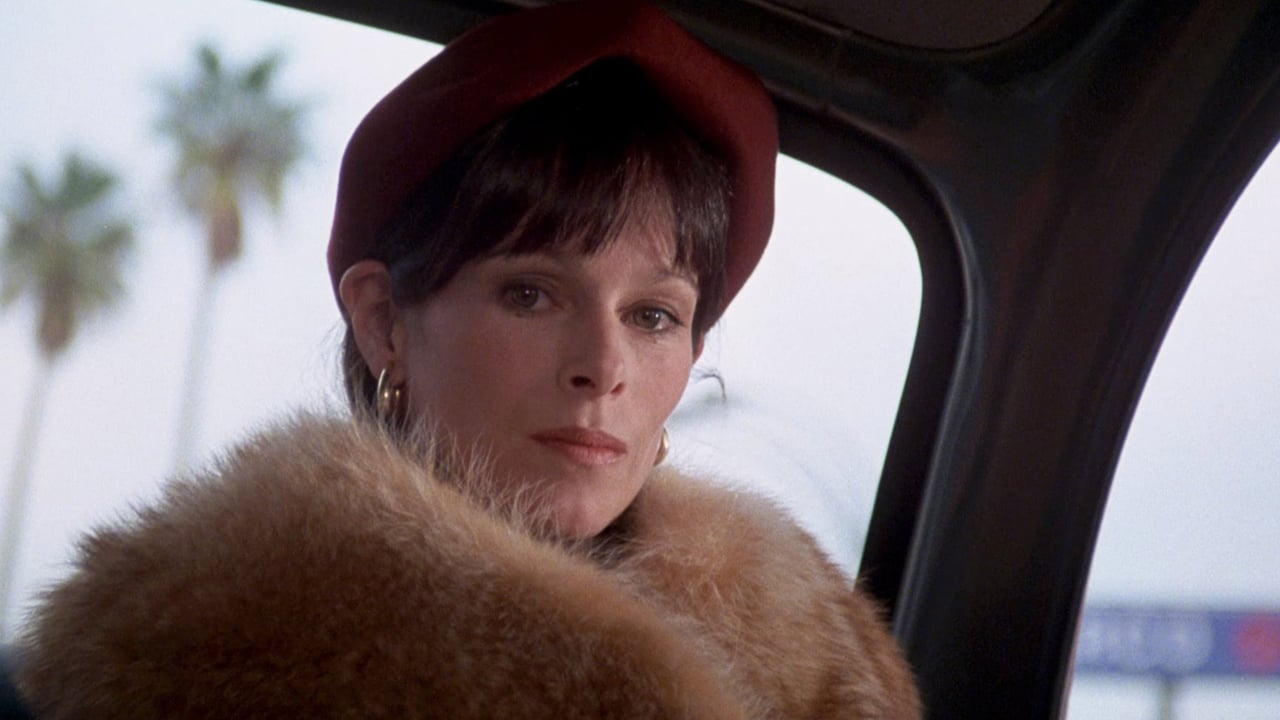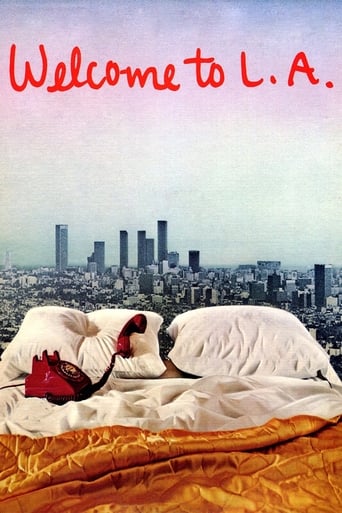

Clever, believable, and super fun to watch. It totally has replay value.
... View Moreif their story seems completely bonkers, almost like a feverish work of fiction, you ain't heard nothing yet.
... View MoreAll of these films share one commonality, that being a kind of emotional center that humanizes a cast of monsters.
... View MoreMostly, the movie is committed to the value of a good time.
... View MoreThis film is so Altmanesque that you might as well watch a Robert Altman film. The inherent problem with mimicking a genius's style is that you'll never be as good as he was. I get that Rudolph is Altman's "protege" and Altman was even a producer on this film, but for the life of me I can't fathom why Altman just didn't direct the film himself...maybe he was busy working on other projects, but if so why water down your artistic legacy with mediocrity. The most egregious problem with this film is the miscasting of Denver Pyle; he might have been good in smaller roles as a hayseed but he simply isn't believable as an executive, and lacks the depth to accurately portray a man who has become distant from his own son. Every line he delivers is flat; he must have known he was struggling in the role, he looks uncomfortable. On the other hand, most of the other actors are terrific: Lauren Hutton, Keith Carridine, Geraldine Chaplin, Harvey Keitel, and Sissy Spacek, all in interwoven Altmanesque stories. My main problem with the film is that it feels very claustrophobic; where Altman tells the big, grand story and dips into the characters every once in a while, Rudolph focuses on the relationships among these vapid people, complete with closeups intended to convey contemplation, wounded pride, happiness, or any other emotion these superficial characters experience. We never really get to know any of them, they appear as strangers at the start of the film and by the end they leave as strangers, which might have been the point that Rudolph was making, but the presentation of this idea isn't sophisticated enough to drive the point home. If it were any good, the music might have redeemed the film, but none of the songs are particularly catchy or memorable, though they are sophisticated. Before last night I had never heard of this film but I'm glad I watched it so I could reminisce about the 70s when cell phones were science fiction and wicker furniture and spider plants were everywhere.
... View MoreIf you saw this film when it came out, the cultural atmosphere would have no nostalgic impact on you, even if you lived in L.A., because it was obviously present day for you.Which brings us to the main thing that so many of us like about the movie. We like to take in the clothes, cars, landscapes and musical vibe of a bygone era; one which we may have lived for and now long for. For younger people, there may be a fascination for the way part of the world was before they were born.I was there in L.A. at that time. As a very wide-eyed and impressionable teenybobber, I was standing in the background watching the grown ups and the older kids living out their 70s lifestyle. I was just a tad too young to join. My favorite line in the film is "Daydreams and Traffic," uttered by Keith Carradine, repeating what his blonde real estate agent said L.A. is all about. I totally agree with that vibe. It's addictive in an odd sort of way.Character development is vitally important to a film, and this one is short on it. For me, at some point, a character has to explain why they are the way there are. Or at least it must come out in related dialogue. It didn't here for the most part.I say "for the most part," because we do at least see through couplings and facial expressions, and monlogues, that they are lonely people who are not getting the love and devotion they had hoped for from their life partners and families.Yes, these are mostly shallow,self-indulgent losers, who characterize the worst aspects of their era and area. But it's o.k. to tell a story about losers, if they are the types you are familiar with. Like another reviewer, I too give the makers credit for not including movie people. That would be too easy and too clichéd.I loved the Richard Baskin music. His slightly off-key delivery made it better than it would be if it were perfect. Songwriters are not necessarily supposed to be great singers. They sing their own stuff with true feeling however, since they know the ethos behind the music better than anyone else. Of course in this movie, maybe the Keith Carradine character was supposed to have written the music.The nudity did nothing for me. The context was not sexy. I'm not a big fan of big boobs on a super skinny body. I like proportion.Even though I am a conservative person, I do often wish I could have lived as an adult during a period when everyone was open to one night stands. I love the idea of bonding with a waitress and enjoying an evening together with no strings. I know that makes me a bit of a hypocrite.I guess I envied the Carradine character's unearned millions, his cool house, his talent, and his ability to bed whomever he chose, whenever he chose. Enough said.
... View MoreIn one of the first experiments with digital photography, the head of Geraldine Chaplin was digitally positioned on the body of a model ( a former Penthouse Pet) for her nude scene to avoid embarrassing her father (Charlie Chaplin) prior to his demise. Although she was anxious to perform in the nude, director Alan Rudolph feared the loss of financing if Lion's Gate Films and producer Robert Altman fell into disfavor with the World Famous Film Icon. Ultimately, Geraldine Chaplin performed the scene in a nude body stocking and it took almost an entire month, using antiquated production equipment, to digitally transfer the nude body to the head of Chaplin. In turn, this put the production way overbudget and as a result, John Wayne was replaced by Denver Pyle as the father of Keith Carradine.
... View MoreI like many of Alan Rudolph's films, and this is one of his best (Choose Me is also good). Although it was made in `77, the story is still relevant today. The lonely, alienated characters whose lives sometimes intersect (but only briefly) has a resonance that somehow captures the modern urban landscape, and L.A. in particular. Keith Carradine, as a near-alcoholic songwriter is the central character.He has brief flings with several women, played by Geraldine Chaplin, Lauren Hutton and Sally Kellerman. This is hardly a cheerful film and some may find it too slow-moving but what stands out is the underlying atmosphere and pathos.
... View More